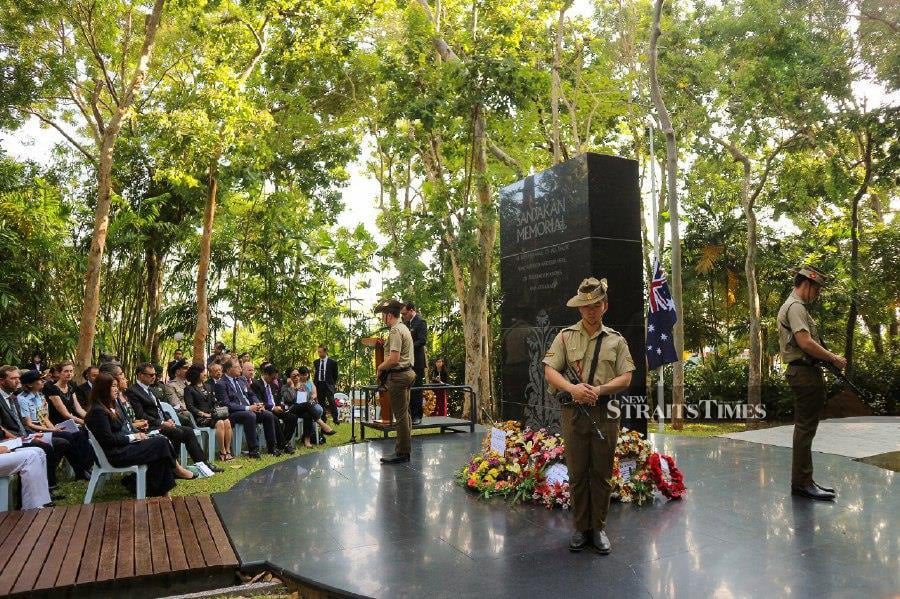By Olivia Miwil - August 13, 2020 @ 12:52pm

Sabah Tourism Board will commemorate the 75th Sandakan Memorial Day to commemorate more than 2,000 British and Australian prisoners of War at Taman Rimba this Saturday. Due to ongoing Recovery Movement Control Order, organiser limits only 50 people and will have live streaming of the event. -Pic courtesy of Sabah Tourism Board
SANDAKAN: An annual ceremony honouring prisoners of war in Sandakan and Ranau will proceed this year, despite the onslaught of the Covid-19 pandemic.
This Saturday marks the 75th anniversary of Sandakan Day, which saw about 2,500 Australian and British troops perish under Japanese occupation during World War II.
Due to the ongoing Recovery Movement Control Order (RMCO), Sabah Tourism Board general manager Noredah Othman said the number of guests for the ceremony will be limited, but the brief event will be live-streamed.
"It will be a small gathering of 50 people physically, but we have sent out invitations for virtual attendance to all our contacts in the UK, Australia and all over Malaysia.
"However, we will have the High Commissioners of Britain and Australia join us, as well as the president of the Sandakan municipal council," she told the New Straits Times.
The Virtual Sandakan Memorial Day 2020 will be held at the Sandakan Memorial Park at Taman Rimba from 7.30am until 8.15am.
Noredah added that in previous years, the event attracted between 300 and 400 attendees, with at least 200 people from Australia.
"It (the ceremony) will be straightforward and short, but we have messages sent by our supporters from both the UK and Australia, and even a special message from the Government General."
The prisoners of war were kept at a camp near Mile 8, where the Sandakan Memorial Park is located now, to build a military airstrip for the Japanese in 1942 and 1943.
In 1945, in a forced-march of 260 kilometres from here to Ranau, most of the prisoners either died from the arduous trail, tropical illnesses, malnutrition or brutal treatment by their guards.
Local people, who had helped the prisoners, also suffered and many were executed.
Comments
Post a Comment